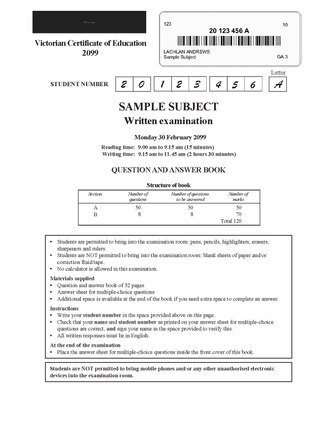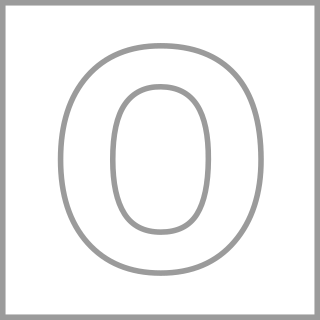
The General Certificate of Secondary Education (GCSE) is an academic qualification in a range of subjects taken in England, Wales and Northern Ireland, having been introduced in September 1986 and its first exams taken in 1988. State schools in Scotland use the Scottish Qualifications Certificate instead. However, private schools in Scotland often choose to follow the English GCSE system.
The New Zealand University Entrance, Bursaries and Scholarships, more commonly known as Bursary, was a former New Zealand secondary school qualification obtained by Year 13, and sometimes, Year 12, secondary school students. Bursary was used to qualify students for entrance to university, award of bursaries and/or scholarship grades.

The Victorian Certificate of Education (VCE) is the credential available to secondary school students who successfully complete year 11 and 12 in the Australian state of Victoria as well as in some international schools in China, Malaysia, Philippines, Timor-Leste, and Vietnam.
New Zealand Scholarship is a New Zealand secondary school award, awarded to a limited number of students, that provides financial support for study at a New Zealand university. It is awarded by assessing candidates against challenging standards through an examination or, in the case of some subjects, submission of a portfolio and/or report. Successful candidates have the potential to receive as much as $10,000 per year over three years depending on the class of award that they achieve. It is highly competitive as only 3% of the number of students studying a subject at NCEA Level 3 are able to achieve a passing grade on the scholarship assessment. New Zealand Scholarship is administered by the New Zealand Qualifications Authority (NZQA), alongside the National Certificate of Educational Achievement (NCEA). It is sometimes referred to as NCEA Level 4, sitting at Level 4 on the New Zealand Qualifications Framework.
In the Scottish secondary education system, the Higher is one of the national school-leaving certificate exams and university entrance qualifications of the Scottish Qualifications Certificate (SQC) offered by the Scottish Qualifications Authority. It superseded the old Higher Grade on the Scottish Certificate of Education (SCE). Both are normally referred to simply as "Highers".
The South Australian Certificate of Education (SACE) is awarded to students who have successfully completed their senior secondary schooling in the state of South Australia.
The National Certificate of Educational Achievement (NCEA) is the official secondary-school qualification in New Zealand. Phased in between 2002 and 2004, it replaced three older secondary-school qualifications. The New Zealand Qualifications Authority administers NCEA.

The International General Certificate of Secondary Education (IGCSE) is an English language based secondary qualification similar to the GCSE and is recognised in the United Kingdom as being equivalent to the GCSE for the purposes of recognising prior attainment. It was developed by Cambridge Assessment International Education. The examination boards Edexcel, Learning Resource Network (LRN), and Oxford AQA also offer their own versions of International GCSEs. Students normally begin studying the syllabus at the beginning of Year 10 and take the test at the end of Year 11. However, in some international schools, students can begin studying the syllabus at the beginning of Year 9 and take the test at the end of Year 10.
The Hong Kong Certificate of Education Examination was a standardised examination between 1974 and 2011 after most local students' five-year secondary education, conducted by the Hong Kong Examinations and Assessment Authority (HKEAA), awarding the Hong Kong Certificate of Education secondary school leaving qualification. The examination has been discontinued in 2012 and its roles are now replaced by the Hong Kong Diploma of Secondary Education as part of educational reforms in Hong Kong. It was considered equivalent to the United Kingdom's GCSE.
The Certificate of Secondary Education (CSE) was a subject-specific qualification family awarded in both academic and vocational fields in England, Wales and Northern Ireland. CSE examinations were held in the years 1965 to 1987. This qualification should not be confused with the Indian Certificate of Secondary Education which is a school-leaving qualification in India. Also, in some African and former British colonial countries there is a qualification named the Certificate of Secondary Education based on the original and former British variant. Also, the CSE should not be confused with the African qualification CSEE.
Sixth Form Certificate was a New Zealand secondary school qualification gained at the end of Year 12 that was awarded until 2002. The system was assessed internally.
The Tertiary Entrance Rank (TER) was a tertiary entrance score used in several Australian states, the ACT and the Northern Territory as a tool for selection to universities in Australia. As of 2010, it has been replaced by the Australian Tertiary Admission Rank in all states and territories.
The Western Australian Certificate of Education (WACE) is the credential awarded to students who have completed senior secondary education in the state of Western Australia. It is the Western Australian graduation certificate of the Australian Senior Secondary Certificate of Education. Students are required to meet various breadth and depth requirements, achievement standards and literacy and numeracy standards across their final years of schooling. As of the 2020 WACE, there are 106 courses available for students to study. Many WACE students are awarded an Australian Tertiary Admission Rank (ATAR), summarising their results across all areas of study into one ranking for the purposes of university admission. Students may choose from ATAR courses, which count directly towards their ATAR, Vocational Education and Training courses, which are more practical courses and can lead to further vocational opportunities, and, from 2021, General courses, which provide pathways to university, employment, or further vocational education and training. From 2010, the WACE replaced the Tertiary Entrance Exam (TEE), as the standard academic examination for school leavers in Western Australia.

The A-level is a subject-based qualification conferred as part of the General Certificate of Education, as well as a school leaving qualification offered by the educational bodies in the United Kingdom and the educational authorities of British Crown dependencies to students completing secondary or pre-university education. They were introduced in England and Wales in 1951 to replace the Higher School Certificate. The A-level permits students to have potential access to a chosen university they applied to with UCAS points. They could be accepted into it should they meet the requirements of the university.

The O-Level is a subject-based qualification conferred as part of the General Certificate of Education. It began in the United Kingdom and has been adopted, often with modifications, in several other countries.
In South Africa, matriculation is the final year of high school and the qualification received on graduating from high school, and the minimum university entrance requirements. The first formal examination was conducted in South Africa under the University of the Cape of Good Hope in 1858.
Various methods of academic grading in New Zealand are shown below.
The A-level is a main school leaving qualification of the General Certificate of Education in England, Wales, Northern Ireland, the Channel Islands and the Isle of Man. It is available as an alternative qualification in other countries, where it is similarly known as an A-Level.
The Queensland Certificate of Education (QCE) is the certificate awarded to students completing their secondary schooling in Queensland. The QCE was introduced in 2008, to replace the Senior Certificate. It is currently issued by the Queensland Curriculum and Assessment Authority (QCAA).
The Junior Cycle is the first stage of the education programme for post-primary education within the Republic of Ireland. It is overseen by the Department of Education and the National Council for Curriculum and Assessment (NCCA), and its terminal examination, the Junior Certificate, by the State Examinations Commission.




